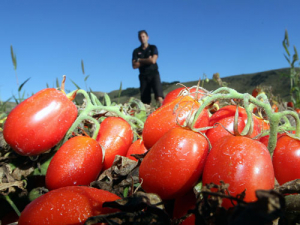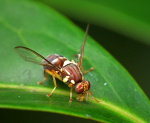Horticulture NZ says evidence from nine experts supports its position that a water conservation order (WCO) is not the way to ensure healthy Hawke’s Bay rivers.
Horticulture New Zealand opposes the application for the WCO in the Lower Ngaruroro River and the Clive River.
Horticulture New Zealand chief executive Mike Chapman says the order will impact the economy and food supply.
“A WCO is a blunt instrument that has been surpassed with better national and regional planning tools," Chapman says.
"The Hawke’s Bay area is unique in New Zealand for growing fruit and vegetables for both export and domestic markets, as well as for processing. Horticulture plays a very significant role in Hawke’s Bay, and the economic activity generated results in positive social effects for the community, through employment, as well as through secondary industries such as Heinz Watties and McCains.
"For horticulture to thrive, and to continue its significant contribution to this region and the New Zealand economy, it is important for plans and policies to provide flexibility when it comes to water allocation. This is so that growers can adapt to cope with changes in water demand from factors such as climate change, the preferences of food consumers both internationally and at home, growing conditions, and biosecurity issues.
"We believe that flexibility comes from existing planning tools such as the National Policy Statement on Freshwater Management and regional plans. Growers understand the need to grow within environmental limits and have been working closely on regional planning with the Hawke’s Bay Regional Council for years. In producing healthy food, it is imperative to demonstrate environmental values, as that is what consumers are demanding.
"HortNZ’s view is that the WCO is outdated, has a narrow focus, creates uncertainty and complexity, and does not provide for the future growing and processing of healthy food. We believe the existing regional planning process can provide for the recreational and ecological values that the WCO applicants seek, but in a way that provides greater flexibility for other values, such as food supply and employment in the region.
"Last week, we provided our evidence to the Environmental Protection Authority, along with testimony from nine experts in planning, recreation and tourism, agriculture and resource economics, and ecology, as well as from growers and water users with years of experience in the region."
About 12,000 hectares of fruit production sits within Hawke’s Bay and nearly 9000 hectares of vegetable production. Fruit includes apples, peaches, nectarines, kiwifruit, pears, plums, apricots and cherries. Vegetables include squash, peas, sweet corn, onions, potatoes, green beans, pumpkin, and asparagus. It is also one of New Zealand’s most important wine grape growing regions.
In 2017, Statistics New Zealand reported that the total GDP of the Hawke’s Bay region was $7.4 billion. Of that, the output of irrigated horticulture within the area defined by the Hawke’s Bay Regional Council as TANK (Tutaekuri, Ahuriri, Ngaruroro and Karamū rivers) is 10.3 % of Hawke’s Bay’s GDP.



















